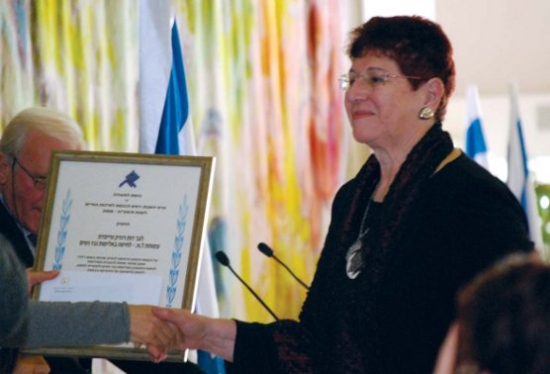
The ‘Quality of Life Prize’ from the Speaker of the Knesset, Ms. Dalia Itzik, is the latest award received by Ruth Rasnic. Ruth is a member of the Herzliya city council and amongst other issues, is chairperson of the social welfare and health committees..
I have known Ruth since she set up the second shelter for battered women, as it was then called, in 1978. It was a small house in the center of Herzliya, cleaned and outfitted by seven to ten volunteers, all working women whilst the then mayor, Yosef Nevo, paid the rent for two years.
This was the first of three shelters set up by Ruth and the L.O. organization. In 1977 Ruth had set up the nonprofit organization, L.O. (fighting violence and abuse against women and their children). It was also the first organization to see the whole problem of domestic violence in its entirety, not only offering emergency help (the shelters) but assisting all victims who wanted help, and by changing the attitude of the police and educating children in schools against violence. She was also one of the founders of the feminist movement in Israel in 1972 and in 1973, the movement for citizens rights initiated by Shulamit Aloni.
Her motivation for setting up a shelter was the report by a man in Bat Yam who had beaten his wife to death with a broomstick. He told the police that he hadn’t expected his wife to die as she was used to being beaten – and they had been married only three months! Ruth immediately contacted her friends and the media saying a solution had to be found to stop that attitude and behavior and to find ways to protect the women. In addition, she set up hotlines in Hebrew, English and Russian. Five years ago a legal assistance unit was established.
The website of L.O. www.no2violence.co.il (Hebrew/English/Russian/Spanish) contains information, statistics, articles, newsletters and links to similar groups in Israel and abroad.
Her unique and practical contribution is in changing the social climate towards women by lecturing and actively participating in all Knesset committees dealing with domestic violence since 1979 which resulted in the passing of the following laws:
- A small housing allowance to be given to the battered women to enable them to start fending for themselves when they leave the shelter or to women known to social workers to be suffering from abuse.
- The law for the helpless: If a citizen is aware of anyone – child, persons with disabilities or any elderly person who is abused, and does not report it to the police, he/she is liable to be imprisoned for six months or a year. Professionals, ie. doctors, social workers, teachers, nurses are liable to receive a sentence of up to a year. (This has never been implemented.)
- Protection orders. A victim can go to court to get an immediate Protection Order valid for up to ten days. During this period social workers have to ascertain whether an extension of this Protection Order is necessary and the abuser can be removed from his home for up to six months.
- Unpaid vacation of up to six months if a woman must flee from her home to another town. If she is unable to return to the town she lived in the employer must pay her severance pay.
When Dr. Ephraim Sneh was minister of health, Ruth showed him reports from prestigious American and British medical journals about the results of domestic violence and, especially, of the effects of same during pregnancy and to the unborn child. Subsequently health authorities, baby clinics and social workers were trained to identify and deal with cases of abuse. Women are now given questionnaires to describe abuse which may affect their infants. Today there are also more social workers for Arab and Druze women needing help.
To a question I asked about abuse and violence among the Russian and Ethiopian communities, Ruth replied that a common cause of violence in Ethiopian communities is due to the fact that the Ethiopian men are not always prepared to accept that their women want to change their lives and benefit from a new society. However, among the Russian newcomers, violence is often the result of heavy drinking, or can occur when a man wishes to get rid of his non-Jewish wife. In Herzliya Ruth has trained groups of Ethiopians and Russians to work in the community with victims of violence.
Ruth is also the Israeli representative of the Common Market (through Mediterranean Urban Security) which operated in Europe as well as in Morocco and Tunisia on the subject of domestic violence. She worked with Arab women within Israel as well as women on the West Bank and Gaza
For the women, the atmosphere in the shelter is one of warmth and support from social workers, psychologists, staff and volunteers. The children flourish in a calm and friendly environment.
Women learn that violence is not their fault. Nobody has a right to abuse them, and when they leave the shelters they are confident that there are many places to turn to in a time of crisis. They are no longer alone.
Ruth Rasnic richly deserves this award.
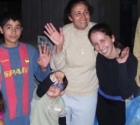 ESRA ASHKELON DONATED GOODS
ESRA ASHKELON DONATED GOODS  DEFIANCE TEL AVIV STYLE
DEFIANCE TEL AVIV STYLE  THE SPIRIT OF ESRA-JULES AND PERLA FOX- EXCEPTIONAL BENEFACTORS
THE SPIRIT OF ESRA-JULES AND PERLA FOX- EXCEPTIONAL BENEFACTORS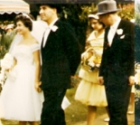 Bridesmaid recalls a very special day 59 years ago
Bridesmaid recalls a very special day 59 years ago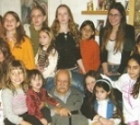 Harry Berman
Harry Berman Sam Levin
Sam Levin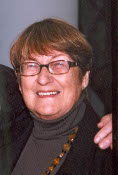 Adele Rubin
Adele Rubin